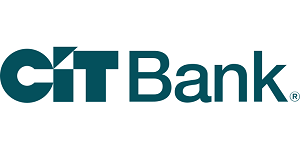If you want more financial discipline you are probably looking to curb impulsive spending, save money, or maybe just achieve financial stability.
Building self discipline with your financial decisions and some of the best personal finance products is an important part of building wealth over the long run.
Why is self discipline the key to becoming a good saver
Being a good saver requires self discipline since there is so much fun stuff to do and buy. You are exposed to more advertising than anyone in the history of the world, and the marketing companies know a lot about psychology and exactly how to get you to part with your money.
So it takes a lot of self discipline in order to fight those tactics and stay on course to meet your goals. You have to have a clear goal and know that meeting that goal is more important than anything you can buy.
It requires a lot of self discipline to overcome the temptation to delay gratification of spending money and to save it instead.
Steps to develop self discipline
Step 1: Set a goal – then break it down into regularly recurring actions
What exactly do you want to achieve? It could be to build a fully funded emergency fund, start investing, pay off your debt, or even achieve financial independence – or anything in between.
Write down exactly what your goal is and the date by which you want to achieve it. For example, you may want to pay off your credit card debt within one year.
Then break down exactly what actions you need to take on a regular basis. Make these actions as small and as regular as possible. A small daily action is better than a larger monthly action.
For example, if you owe $10,000 on your credit card you’ll need to pay $833.33 off each month. Is that doable? If your budget allows for that, great. If not, you’ll need to figure out what exactly you need to do make up the difference.
If your regular payment is $150 and you can pull an extra $200 per month from your monthly budget that means you’ll need to come up with an additional $484 per month. If you have time to walk dogs after work you may decide to pick up a dog walking client for a few walks per week. At $25 per walk you’d have to walk the dog 20 times per month to make up the $484 you need. If you picked up a client that needed the dog walked everyday after work, you’d have the full amount.
You now have a goal and an action plan to make that goal happen.
Here are a few examples of short, mid, and long-term goals, but feel free to fill in the blanks with your own personal financial goals.
Short-term goals
- Saving money each month towards your emergency fund
- Going out to dinner with friends twice a month
- Small household projects (planting a small indoor garden, painting a room, etc.)
Mid-term goals
- Saving for a weekend getaway
- Paying cash for your next car
- Paying off your credit card debt
Long-term goals
- Down payment on a house
- Paying off your student loans
- Putting money away for retirement
Step 2: Track your progress
You’ll want some way to visualize and track your progress. A lot of people find this extremely motivating.
Using the example of paying off your car above, you could make a thermostat and color in a section each time you make a payment, representing the amount of money you’ve paid off (or is left on the loan). Or cover a piece of paper with stars (or anything else) and color in a star every time you send in your payment, each star representing one payment or a set amount of money.
Hang your tracker on the fridge so you can see it every day to remind you of what you are working towards. Make it a little celebration each time you get to fill in more of your tracker.
You can also go digital with your goal tracking. Apps like Empower (formerly Personal Capital) offer a few different services for investing and checking up on your financial health. But, in this instance, I’m referring to the free tools they offer to keep track of your net worth and portfolio.
You can create an account with them without opening an investment account. The wealth management and planning tools are the ones that you will probably be most interested in to help determine where you are at currently.
You can connect all of your financial accounts within the tool. These will be things, such as:
- Checking account
- Savings account(s)
- Investment account(s)
- Student loan account(s)
- Auto loan account
- Mortgage account
- Credit card(s)
- Medical debt account(s)
Sometimes, it can be pretty scary to see what your actual net worth is vs. where you want to be.
But, I use this as a driving force to work harder every month to increase my overall net worth. Because the faster I can get my net worth up, the faster I can get to my long-term goals.
Step 3: Find your tribe

Find people in your life who are working towards similar goals. This will help build self discipline because you’ll have a community that is embodying the new behaviors you want to build.
If you meet regularly with others who are paying off debt, you’ll have more discipline to follow that same path. You’ll have someone to share your successes with and a friend who can help when you are struggling.
Contrast that to when your friends regularly encourage overspending. Just going out to have a meal or a drink with friends can end up costing $100 or more in some instances. Something that sounded so innocuous, has now completely derailed your goal.
This isn’t to say you need to replace your entire friend group – not at all. But it will be up to you set a budget for having fun and then stick to it.
For example, instead of having two-three drinks, only have one. Go out for lunch instead of dinner, or a matinee instead of a night movie.
All of these options still give you the freedom to hang out with your friends and enjoy your life, but it won’t cost you nearly as much. And when you stick to your budget, your future self will thank you for your discipline.
Tips to meet your financial goals
Determine your needs vs. your wants
Setting up your financial goals and a way to track them are the first steps. But staying on track can get tricky when life happens. This is where needs vs. wants come into play. There are things that all of us want to have. But these are the things that can throw us off track so fast it will make your head spin.
So keeping in mind if the item/service is a need or a want can help you have more financial disciplined. Just remember to think long and hard about any purchases before you pull the trigger. If it is a need, then go ahead and do it. But if the item is actually something you want instead, it’s usually best to hold off even for a bit to make sure you still really want it as much as you think you do.
Reduce, reuse, recycle
When it comes to purchasing wants, you have a few other options that can save you a ton of money. If there is an item that you are wanting to purchase, but it simply isn’t in the budget, what might be some other ways to achieve the same goal?
Reduce, reuse or recycle may just be the best option here. If you have things in your house that you can get rid of (and maybe even make some money off of their sale), then that is one way to get the potential want. Sell your old stuff and then use the proceeds to purchase the new want item.
Or, if you can reuse an item you have in your house already, paired with something else, in order to create a similar item, then why not do that? Sometimes, all a table or chair needs is a fresh coat of paint in order to feel like a completely new item. So get creative and think outside the box about things you already have at your disposal.
And if all else fails, recycle your old items. You may not make any money off of them, but you could potentially get a tax write-off. Plus, it declutters your space, which can make it feel like a completely new room. Sometimes, that is really all you need.
Make it automatic
No matter what you goal is you can probably automate at least some of it.
If you want to save more, schedule automatic transfers from your checking to your savings. If you want to pay off a certain amount of debt each month, set automatic payments to your accounts.
Having these transactions happen automatically will remove the friction that can be caused when you have to manually make that extra payment, or save that extra money. You can always go in and stop or change the automatic payment if you can’t swing it one month, but making it the default will cause it to happen more often than not.
Of course, don’t set yourself up for failure. Setting an automatic payment without a plan to make sure the money is available will cause more harm than good. Create a feasible plan and realistic goal, then set it up to run without any extra effort from you.
Put your emergency fund in a high yield savings account
If you are working on building your emergency fund – or already have a solid savings account – you’ll want to make sure you are getting the most interest possible. This will help grow your savings rate since you’ll be earning a little extra interest each month.
Interest rates on high-yield savings accounts are higher than they’ve been in years, and the difference between online accounts and those at your local bank are huge. So, while these high yield savings account rates may not be anywhere close to the average return you will get on investing your money, it’s still nice to make some interest on your savings.
One of the best high yield savings account, in my opinion, is the CIT Bank Platinum Savings Account. It offers one of the highest interest rates out there we could find with no account opening or maintenance fees so you keep what you earn. And the mobile app from CIT Bank makes it a breeze to deposit checks or make free mobile deposits.
With no account opening or monthly service fees, the CIT Platinum Savings Account is a premier option that offers a competitive 4.00% APY with a balance of $5,000 or more.
With an initial deposit minimum of just $100 to open an account and no minimum balance required after, this is an easy high-yield savings account to open. See site for details.
- Earn up to 4.00% APY
- No monthly service fees
- Unlimited transfers and withdrawals
- Fast, easy account opening
- Balance requirement for max APY
- Lack of ATM access
» MORE: Comparison of the best savings accounts
Summary
Overall, it is extremely easy for our money to flow through our fingers like water. This is why you have to be cognizant of what you have and where you want to be with your finances.
If you want to avoid debt, save more money, or invest for your future then it’s important to develop self discipline in your finances.






